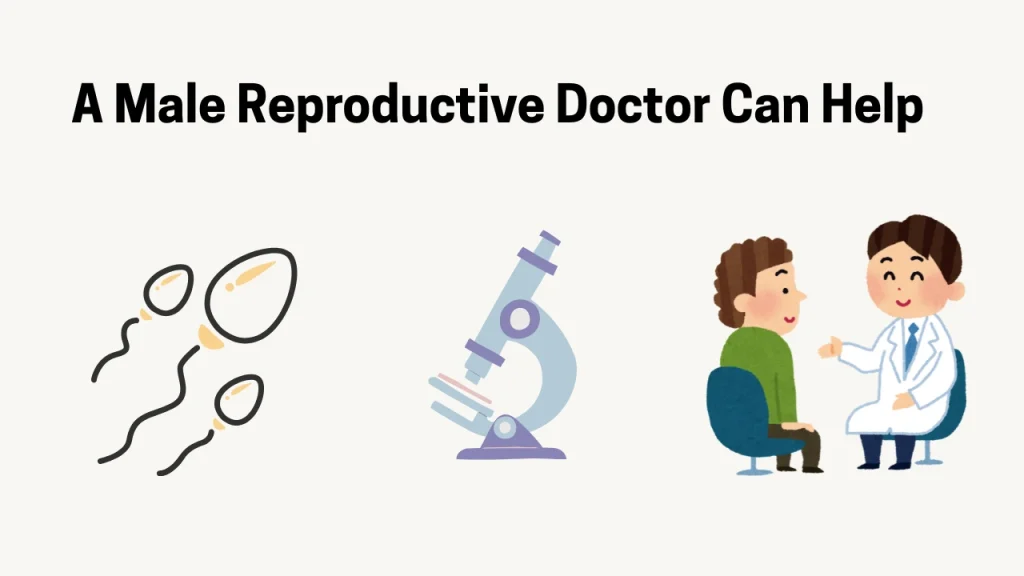When we talk about IVF (In Vitro Fertilization), the focus often shifts towards the woman’s body—her eggs, her hormonal cycle, and her uterus. However, what many couples don’t realize is that male fertility is equally important. In fact, around 40–50% of infertility cases involve male factor infertility. This is why consulting a male reproductive doctor is a crucial step in a couple’s IVF journey.
Understanding Male Fertility in the IVF Process
Male fertility is largely determined by the quality and quantity of sperm. This includes sperm count, motility (movement), morphology (shape), and overall DNA integrity. A male reproductive doctor is trained to evaluate all these aspects to determine how they may affect fertilization success in an IVF cycle.
Men are often surprised to learn that their health and lifestyle directly impact sperm health. Factors such as smoking, alcohol, stress, lack of sleep, and poor diet can reduce sperm quality. That’s why doctors often recommend dietary changes, lifestyle adjustments, and sometimes fertility medicine to improve sperm function.
How a Male Reproductive Doctor Helps ?
A male reproductive doctor (also known as an andrologist or male fertility specialist) conducts a complete fertility evaluation. This usually starts with a semen analysis, hormone tests, and sometimes genetic screenings. These tests help determine if there are any underlying issues such as low testosterone, varicocele (enlarged veins in the scrotum), or even infections that might be impacting sperm health.

Based on the diagnosis, the doctor may recommend lifestyle changes, fertility medicine, or even surgical interventions to correct physical issues. In some cases, advanced techniques like ICSI (Intracytoplasmic Sperm Injection) are used in IVF when sperm quality is very poor.
Role of Fertility Medicine in Male IVF Support
Just as women are prescribed medications during IVF, men may also need support. This is where fertility medicine plays a role. These medications can stimulate natural hormone production, improve testosterone levels, and enhance overall sperm production.
Additionally, ivf medicine used during the IVF cycle may sometimes include supplements for men—rich in antioxidants like zinc, selenium, and CoQ10—which are proven to boost sperm quality. The goal is to provide the best possible sperm for fertilizing the egg, either naturally or through ICSI.
A male reproductive doctor monitors how these medicines are working and adjusts the dosage or treatment accordingly. It’s important to follow the doctor’s instructions precisely, as misuse can affect not only fertility but overall hormonal balance as well.
Common Causes of Male Infertility in IVF Cases
Understanding what affects male fertility helps in taking preventive action early on. Some common causes include:
- Varicocele: This is a swelling of veins inside the scrotum and is a common cause of reduced sperm quality.
- Infections: STDs or UTIs can affect sperm transport and production.
- Hormonal imbalances: Low levels of testosterone or other hormones can impact sperm.
- Lifestyle factors: Smoking, excessive drinking, obesity, and lack of exercise are significant contributors.
A male reproductive doctor will evaluate all these factors before creating a treatment plan. In some cases, treating a varicocele or starting a fertility medicine regimen is enough to significantly improve sperm count.
The Psychological Side of Male Infertility
IVF can be emotionally taxing for both partners, but male infertility often comes with added stigma. Many men feel ashamed or frustrated when they learn their fertility is a contributing issue. It’s important to address these feelings and not bottle them up.
Open communication, counseling, and emotional support are essential. In fact, a male reproductive doctor may work in collaboration with mental health professionals to provide complete care. Don’t hesitate to ask for emotional or psychological support during your IVF journey.
Moreover, some ivf medicine protocols also involve counseling sessions to help couples cope with the highs and lows of treatment. This holistic approach has been shown to improve not just success rates but also the overall mental health of the couple.
Lifestyle Tips to Improve Male Fertility
Even before visiting a male reproductive doctor, there are lifestyle changes men can make to improve their fertility naturally:
- Eat a diet rich in fruits, vegetables, lean protein, and healthy fats
- Avoid smoking and limit alcohol consumption
- Exercise regularly but avoid overtraining
- Get enough sleep and manage stress
- Wear loose-fitting underwear and avoid overheating the testicles
In addition to these steps, doctors may recommend supplements or fertility medicine that contain ingredients like folic acid, zinc, and L-carnitine.
Taking these steps seriously not only boosts IVF outcomes but also promotes long-term reproductive health.
Conclusion
Male fertility plays a critical role in IVF success. Ignoring this factor can lead to repeated failed cycles, emotional distress, and unnecessary expenses. That’s why working with a male reproductive doctor is essential. From diagnosing underlying issues to prescribing ivf medicine and fertility medicine, they provide expert guidance throughout your fertility journey.
Remember, IVF is not just a woman’s issue—it’s a team effort. By acknowledging the importance of male fertility and taking proactive steps, couples can increase their chances of success and bring their dream of parenthood closer to reality.